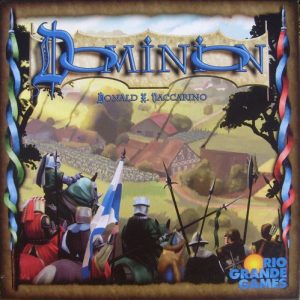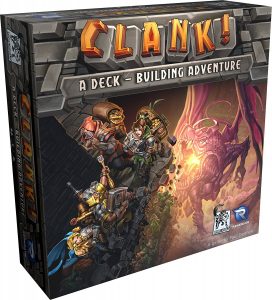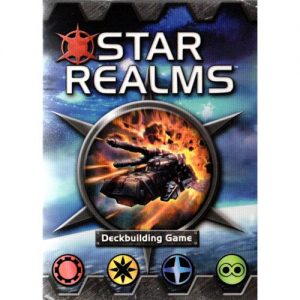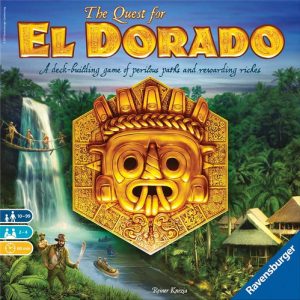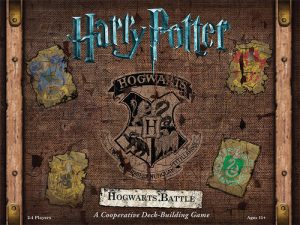Introduction to Deck Building Games
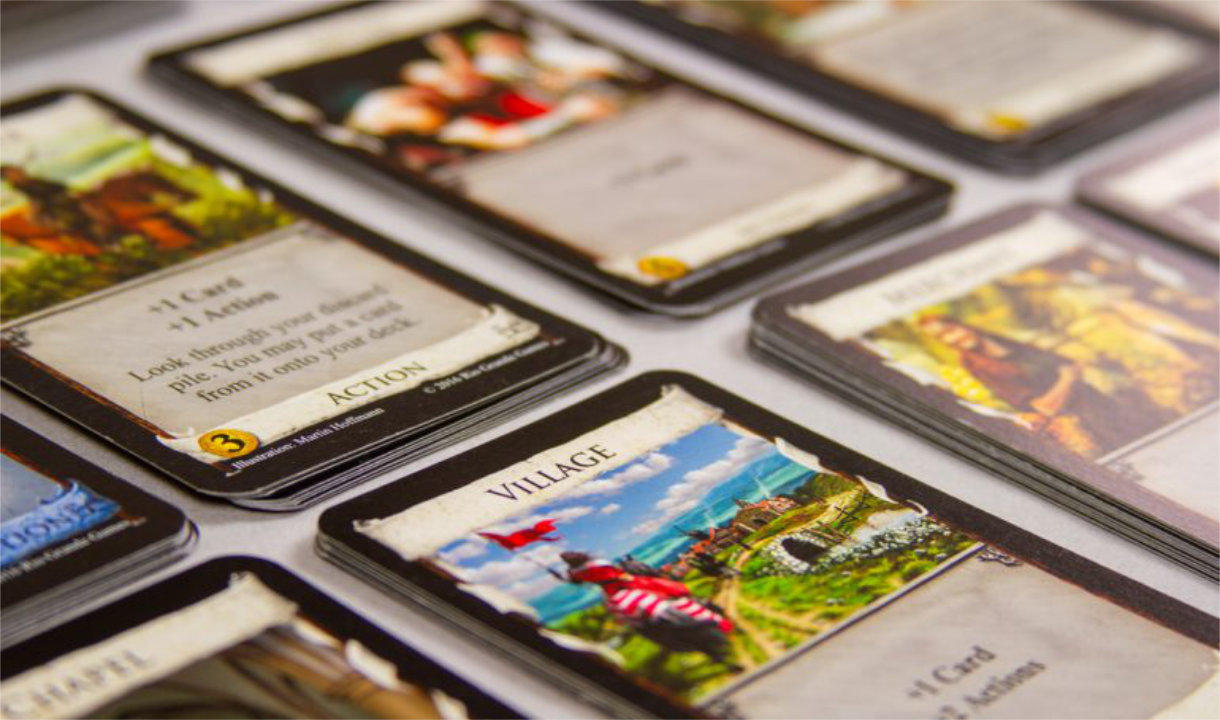
Card Games are extremely popular…
They have been around for a long time and all of us have likely experienced them in one form or another, be it through Poker, Uno or Rummy. Traditional card games have one important aspect in common: They use a fixed number of cards that form a common deck (a standard deck of playing cards uses 52). For most games this deck is shuffled well, and each player receives a certain number of cards as their starting hand. The game then progresses from there. In short, each player will have different cards to enter the game play which were distributed completely at random.
What if there was a style of game that would give each player the exact same set of cards as a starting hand and furthermore offer them the ability to expand their hand by adding new cards of their choice? Enter the board game genre of deck building.
Deck building games are a relatively new sub-genre of games that were introduced to the world in 2008 with a game called Dominion. Dominion, which was designed by Donald X. Vaccarino, won the ‘Spiel Des Jahres’ in the following year of 2009. It has since become one of the most popular board games around and has spawned many expansions over the last decade. Dominion offered a truly new and unique gaming experience that has led a plethora of other deck building titles. Even though the choices of deck building games are now vast and plentiful, I still recommend Dominion as a starting point if you have never tried this genre before. Therefore, I will use it as a base to walk you through the concept of a deck building game. Most other titles will work similarly at their core, even though they might vary in some of the details.
The goal of most deck builders it to collect the most victory points from your cards. In the beginning each player will start with the exact same number and kind of cards as their hand. In Dominion each player receives 10 cards. These cards are a mixture of currency cards and point cards. In addition to these starting cards, the game also offers a market, usually displayed in the middle of the table. This market represents new cards that players will be able to acquire during game play. Most of these cards have an associated cost as well as a special power or ability if played. In Dominion these cards are called action cards.
Before the game begins, each player shuffles their 10 starting cards and places 5 of them into their hand. The rest of their starting deck remain in the left side of their playing area as a draw pile. On a player’s turn they may now play a single action card form their hand (if they have any) and take advantage of any special abilities it might grant. After that, the player may play any of their currency cards and use them to purchase 1 new card from the market. All of the played and un-played cards, as well as the newly purchased card will now be placed on the right side of the play area on a discard pile. The player now takes 5 new cards from their draw pile as their hand for their next turn. Should the draw pile be empty, the player shuffles all of their cards from the discard pile and converts them into the new draw pile. And this latter action is where the heart of a deck building game lies: Any cards a player uses, or purchases, will eventually become the new cards of their hand. But one never knows at what point in the game a certain card will re-surface in order to be used. At the end of the game (usually when the pile of a certain market card is exhausted) players add up their victory card points and the player with the most points wins.
What makes deck building games to exciting for me, is that they provide a perfect mixture of luck and planning. Each player has complete control about which cards they will purchase to expand their decks, but one never knows when these new cards will come back into one’s hand to be played. And like most things in life, timing can be everything.
If you have not experienced a deck building game, I strongly recommend you try one. Dominion is always a great starting point but there are plenty of titles to choose from. Here are some of my favourites:
2-4 players, ages 8 and up
Each player starts with an identical, very small deck of cards. In the center of the table is a selection of other cards the players can “buy” as they can afford them. Through their selection of cards to buy, and how they play their hands as they draw them, the players construct their deck on the fly, striving for the most efficient path to the precious victory points by game end.
1-4 players, ages 12 and up
Burgle your way to adventure in this thematically string deck builder. Sneak into an angry dragon’s mountain lair to steal precious artifacts. Delve deeper to find more valuable loot. Acquire cards for your deck and watch your thievish abilities grow.
Be quick and be quiet. One false step and CLANK! Each careless sound draws the attention of the dragon, and each artifact stolen increases its rage. You can enjoy your plunder only if you make it out of the depths alive!
2 players, ages 12 and up
A fast paced, 2 players only, deck-building card game of outer space combat. As you play, you make use of trade to acquire new ships and bases from the cards being turned face up in the trade row. You use the ships and bases you acquire to either generate more trade or to generate combat to attack your opponent and their bases. When you reduce your opponent’s score to zero, you win!
2-4 players, ages 10 and up
In this charming and light deck builder, players slip into the roles of expedition leaders who have embarked on a search for the legendary land of gold in the dense jungles of South America. Each player assembles and equips their own team, hiring various helpers from the scout to the scientist to the aborigine. All of them have but one goal in mind: Reaching the golden border first and winning all of the riches for themselves. Whoever chooses the best tactics will be rewarded!
2-4 players, ages 10 and up
The forces of evil are threatening to overrun Hogwarts castle. In this cooperative deck-building game, it is up to four students to ensure the safety of the school by defeating villains and consolidating their defenses. Each player has their own personal deck of cards that’s used to acquire resources.
By gaining influence, players add more cards to their deck in the form of iconic characters, spells, and magical items. Other cards allow them to regain health or fight against villains, keeping them from gaining power. The villains set back players with their attacks and Dark Arts. Only by working together will players be able to defeat all of the villains, securing the castle from the forces of evil.
Are you intrigued to try a deck building game? Here are my top suggestions:
Fun Halloween Games
Fall sure was beautiful this year in Manitoba...But now that most of the leaves have fallen to the ground, the temperature is suddenly dropping and nightfall comes earlier. We can all sense the time that is upon us: Halloween! And what a fun time it will be. A brief...
Would I lie to you? Games of deception
This is the era of information - and mis-information...Over the last months we have all experienced how difficult and confusing it can be to find reliable sources of facts and truth. Doesn’t matter what your political, social or medical opinion and interpretation of...
Analysis Paralysis – The Option Overload
Recently my wife and I decided to get some new blinds for some of the windows in our house...This week we went ahead and met with a salesperson for a consultation. After carefully discussing our different options for the kind of blinds we might want, we eventually...
